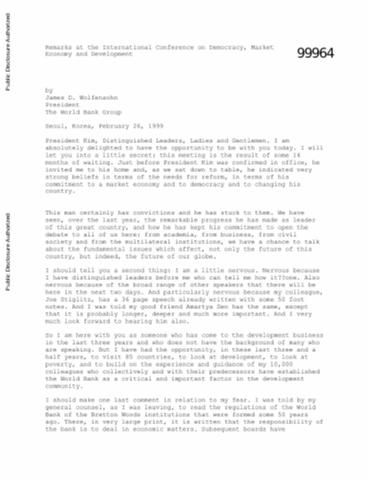Remarks at the International Conference on Democracy, Market Economy, and Development
James D. Wolfensohn, President of the World Bank Group, discussed what the Bank learned in coming to look at the issues of poverty and development. Development requires proper economic policies, but also the essential element of the social aspects and human aspects of society. The Bank’s focus is to think first in terms of poverty—fighting poverty with passion was adopted recently as the first line of our mission statement. Wolfensohn discussed an agenda for action on the issues of inclusion, corruption, transparency, education, knowledge, and private sector environment.



